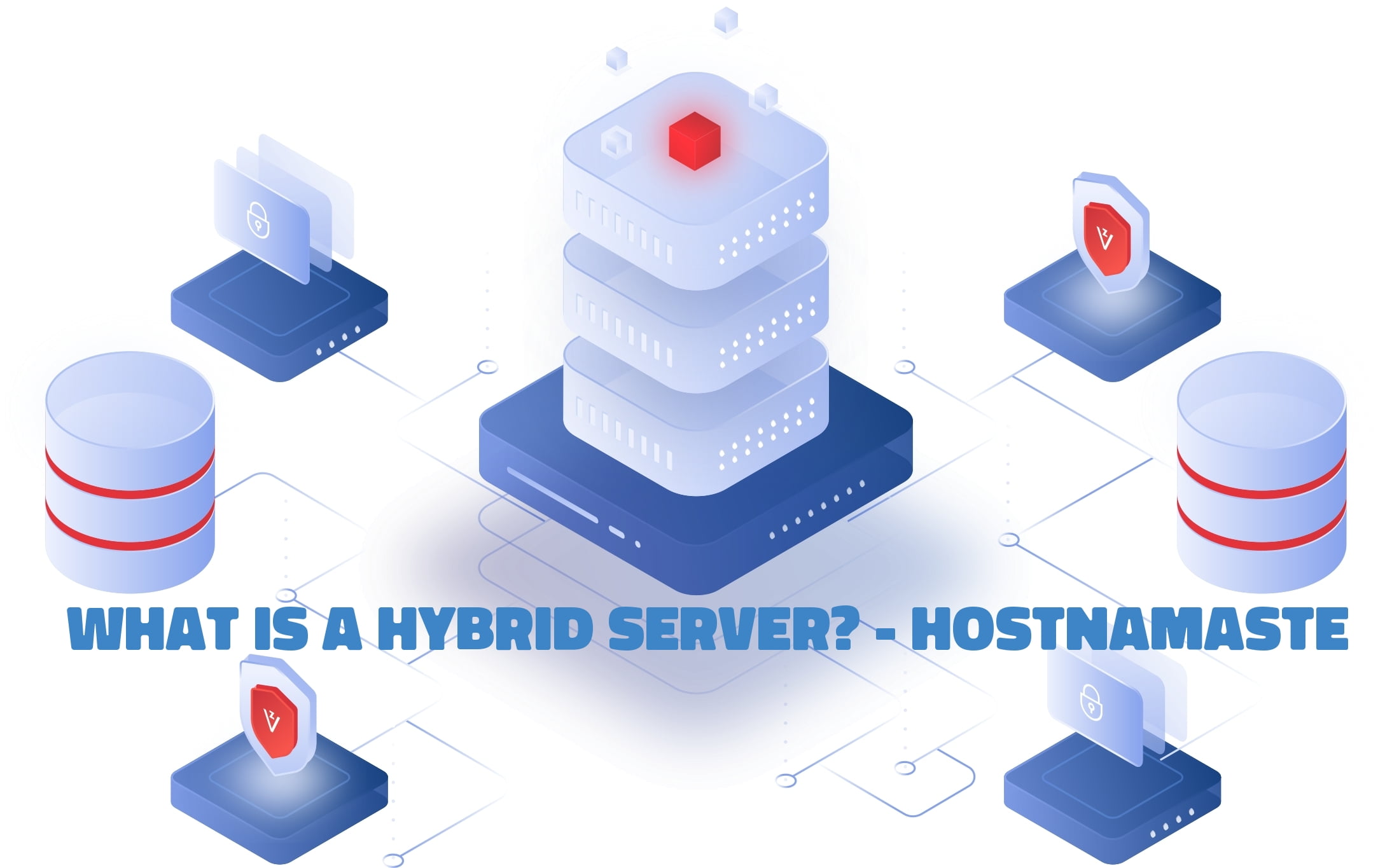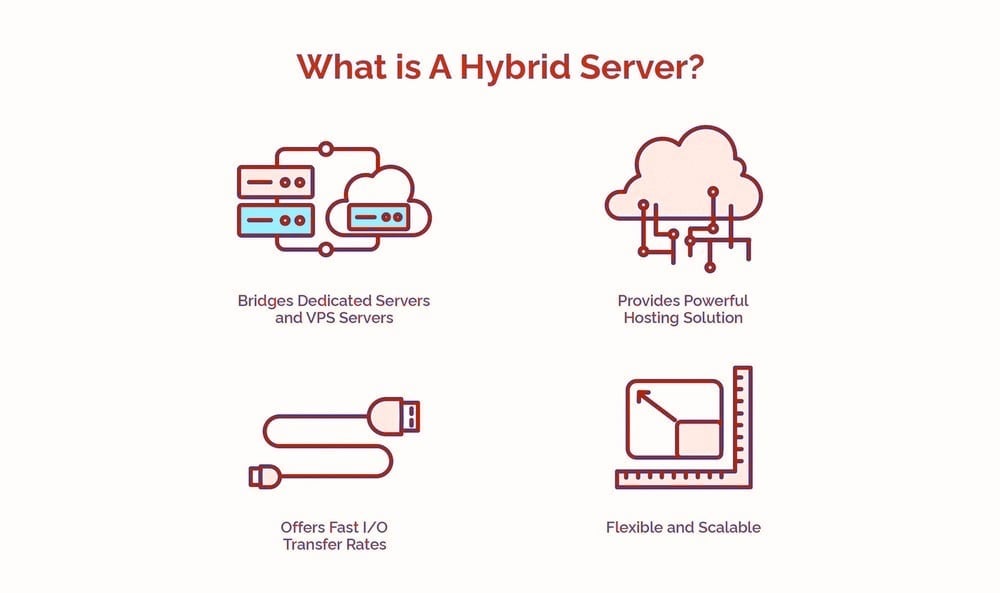
What Is a Hybrid Server?
A hybrid server, also known as a hybrid environment, is a blend of an on-premises (physical) and a virtual (cloud) server. This allows clients to combine the power of a physical host and the flexibility of virtualized technology. One of the main advantages is increased up-time and reduced network congestion.
A hybrid environment functions by taking a single dedicated server and dividing it into several isolated virtual ones. Unlike a virtual private server (VPS), hybrid environments dedicate resources to each host and only hold a few occupants on each one.

Hybrid servers offer guaranteed CPU, RAM, storage, and bandwidth allocations. In addition, by using KVM virtualization to deliver dedicated resources, they provide better performance and increased up-time.
Host networks can be complex, even for a student looking to become an IT specialist. Understandably, your primary focus might be on the practical elements of IT systems. If so, you can count on EssayHub writing service timely and expert help. You’re guaranteed to receive help with your essays from trained professionals.
What are Hybrid Servers Applications?
Hybrid servers are ideal for stable and consistent applications as clients cannot resize them. That said, they tend to be highly robust, flexible, and efficient. As a result, they suit eCommerce and high-traffic websites that have outgrown their current hosting.
Here’s a list of some of its key applications:
- Web Hosting;
- Content Management Systems;
- eCommerce Websites;
- Database Hosting;
- File Storage.
What are the Hybrid Servers Benefits?
It’s beneficial for hosting situations that call for more flexibility with virtualization. Situations such as improving, testing, and mounting servers, load-balanced clusters, and other applications. In such scenarios, the ability to organize new hosts quickly and reboot or reinstall your OS on the server is helpful.
Backend architecture may be downloaded into distant virtual environments via hybrid servers. This facilitates the provision of information from remote sources on an hourly basis.
Besides, it saves a significant amount of time and energy. Everything can be done using a broadband connection. All that’s needed to gain access is modern equipment with enhanced security measures.
Some of the advantages include:
- It increases privacy and ensures that data handling, storage needs, and procedures are easily maintained and regulated.
- It gives clients autonomy to investigate and develop the best cloud-based solutions for a number of operational areas.
- On private servers with higher encryption levels, sensitive data may be saved and safeguarded for in-house access. In contrast, large sections of the publicly available data can be evaluated on a public side of the network.
- Faster data transfer enables hybrid environments to set up and push important data through a private host funnel rather than a public one. It eventually increases data transfer expenditure and drastically improves load times.
- It offers an economical alternative by being cheaper than its dedicated counterpart.
Also Read: Hybrid Servers – Finding Alternative Routes To Up-Time the Performance
How are Hybrid Servers Environment Different From a Dedicated Servers?
As explained earlier, a hybrid server is a mix of a dedicated server and a virtual one. Hardware and software components (cloud computing) merge to create a hybrid of the two. It works by taking a dedicated server and dividing it into a few independent virtual hosts. Each is capable of hosting a certain number of users.
In contrast, a dedicated server is a physically remote host that is devoted to one client, organization, or application. There is no virtualization layer. Client hosting environments run on the bare metal system. They are suitable for hosting services where excellent performance is a crucial requirement.
Which Is Better? – Hybrid OR Dedicated

In terms of functionality, none is better than the other. Most of their functions overlap. It’s better to determine your intended use and go for a solution that matches your needs. However, they both have their benefits which are closely tied to a user’s intended end goal.
Dedicated servers are an excellent alternative to host long-term services. Especially where maximum performance is more important than virtualization’s flexibility and ease. They may scale beyond virtualized systems because they are physical servers. Neither host OS nor virtualization layer is present to limit the functionality or scope of clients’ applications.
Dedicated servers require a large number of technical resources and can be expensive. Some cloud solutions may, however, be more vulnerable to cyber security assaults and data infringements. A hybrid server can ease such problems. How so? By adding redundancy, security, and flexibility layers if properly configured.
A dedicated server is ideal if your main objectives are raw power and full host control. Yet, if flexibility and convenience are your main concerns, you should go for a hybrid solution.
Also Read: Hybrid Servers vs. Dedicated Servers – Which Is Right for You and Your Business?
Conclusion
A hybrid server is a technological feat that’s hard to overlook. The solutions it provides have proven necessary in staying up to date in the tech space. For clients looking for a flexible hybrid server, it’s a breath of fresh air. Now, clients have more options and the freedom to try out different applications at a cheaper price.
Although it has significant benefits, it may not suit every business or individual. Deciding whether a hybrid server is the right solution for you is crucial in getting a right setup for your business or personal use. Possible inconveniences include servicing, complexity, and debugging.
In conclusion, a hybrid server is an innovative blend of classic hardware and modern software technology. It’s the perfect solution if you have the resources and value convenience, security, and adaptability.
Host Namaste Reviews and Testimonials – Trusted Worldwide


